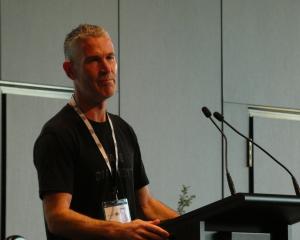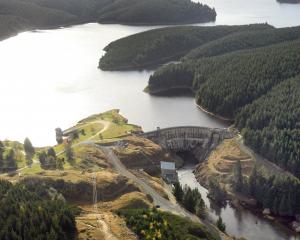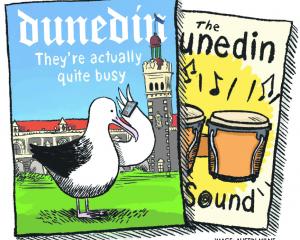
It's not the first time it has used that strategy. In 2018 it leased a plane from Taiwan's EVA Air to cover for Dreamliner aircraft that were affected by Rolls-Royce engine problems.
This time the driver is strong domestic demand for flying.
Chief executive Greg Foran told media in New York this week that demand going into Christmas and bookings continued to remain incredibly robust.
"And bringing these 777-300s back, it's not a five-minute job. It's not just the issue of getting a plane out of the desert and getting it ready to fly.
"You have got pilots to train, you have got crew to train and there are all the suppliers that go into it. LSG has got to increase their workforce. Instead of 500 people, they got down to 60 or 70 during Covid.
"There's a good chance that we will end up doing a wet lease for a period of say 12 weeks to put more operational surety into what we have sold through the Christmas period."
He said there were numerous options airlines could use to beef up their fleet ranging from buying a plane or engine or even leasing an engine by the hour or over a period of time, and then there was the wet lease option which involved leasing both the plane and its crew.
"You use all those various levers depending on what you perceive as the right outcome for the business."
Foran said there was good demand domestically in terms of people wanting to travel New Zealand for leisure.
"That leisure travel is running ahead of what it was pre-Covid."
Pre-Covid a reasonable percentage of its domestic travel was corporate travel.
"It's not quite back to 2019 but it is getting very close."
But the wet lease move is unlikely to go down well with staff. Foran first mentioned the wet lease option back in August.
At the time the flight attendants' union said it was disappointed by the move.
Flight Attendants Association of NZ president Craig Featherby said Air New Zealand was on a huge recruitment drive but it was also common knowledge that Air New Zealand paid a lower salary for flight attendants.
Pay increases to retain staff would be a "smidgen" of the costs of a wet lease, which could run into tens of millions of dollars for the summer period. Competition from other airlines short of capacity will push up lease costs.

Pre-Covid Air New Zealand had 29 wide-body aircraft but he did not believe they needed to get back to that number.
Instead, they will aim to have about 23 or 24 wide-body planes. Foran said it would focus on higher utilisation with planes going for up to 14 to 16 hours a day.
"Because in this business the way you make money is utilisation of assets, so return on capital is actually a very good measure of how well we are operating."
He said the airline was dealing with such a different environment post-Covid.
"From people working from home, this hybrid environment to now the complexities of the economic situation that none of us quite sure of, to world disorder, Ukraine, Russia and China."
On top of that there were sustainability challenges.
"Let's not just go out there and say we are back, we are off, let's go and put in an order for 16 more planes and assume that everything is going to be okay."
Instead it was taking a more measured approach across the business similar to its new New York route where it has started with just three flights a week.
Uberising flights
One concept it is considering is how to uberise short domestic flights such as between Auckland and Hamilton using electric planes.
The airline has been in talks with Kiwi billionaire Richard Chandler about investigating electric or hybrid electric aircraft for use on regional routes as early as 2030.
A battery-powered plane backed by Chandler has successfully flown in the United States and he made a guest appearance to talk briefly about it to New Zealand business leaders on a delegation to New York this week.
"This concept that travel is not just a bus but could be uberised ... in the discussions I've had with Richard that resonated with me."
At the moment the electric planes only stretch to a nine-seater due to the weight of the battery.
"Would you run a nine-seater between Hamilton and Auckland? And would you uberise it? It sort of makes sense. But we have still got to get that FAA certified and do all the other things."
Foran said it could be a possibility in three to five years' time.
"I do like this concept that on a shorter route that you do literally turn up, walk in and go: 'Great there's a plane going in 20 minutes'."













